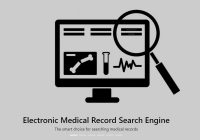New framework developed at U-M helps streamline EHR data extraction
A cross-disciplinary team of researchers from U-M have developed an open-source framework that streamlines the preprocessing of data extracted from the electronic health record. The framework, which the researchers call FIDDLE (Flexible Data-Driven Pipeline), has the power to greatly speed up EHR data preprocessing and assist machine learning (ML) practitioners working with health data, according to a study published in… Read More »












